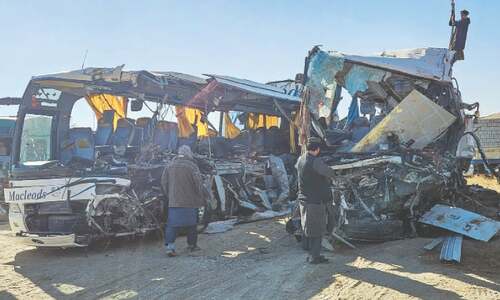DHAKA, Aug 25: Melting Himalayan glaciers, rising sea levels and depleting fresh water sources as a result of global climate change are posing grave threats to food production and economic development in the populous South Asia region, experts said on Monday.
Dozens of scientists and policy makers from 18 countries and international agencies gathered at the Bangladeshi capital, Dhaka, on Monday for the start of a six-day conference to discuss ways to mitigate the adverse effects of climate change on food security in South Asia. South Asia is home to a fifth of the world’s population, and 40 per cent of its poor.
The region — which includes Afghanistan, Bangladesh, Bhutan, India, Nepal, Pakistan, Sri Lanka and the Maldives — is prone to incessant monsoon rains, drought, heat waves, frost freezes, desertification and salinisation, all of which experts attribute to climate change.
Despite increased crop yields over the past decades, about 312 million people, or nearly 21 per cent of the region’s 1.5 billion people -- including half of its children -- still do not get enough to eat, according to the UN’s Food and Agriculture Organisation.
“The adverse effects of climate change are a major barrier to food security and achievement of sustainable development goals in South Asia,” said Ad Spijkers, FAO’s representative in Dhaka.
Bangladesh, a densely populated nation of 145 million, is most vulnerable to natural hazards like cyclones, floods and salinisation of coastal areas.
“Bangladesh may lose as much as one-third of its land mass due to sea level rise,” said Bangladesh President Iajuddin Ahmed, who is also a soil scientist.—AP













































Dear visitor, the comments section is undergoing an overhaul and will return soon.